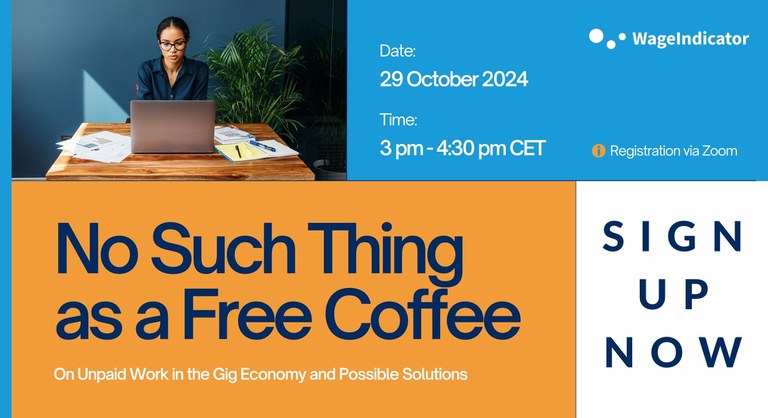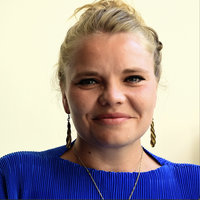About the Session
The advent of digital labour platforms requires researchers, civil society organizations, and policymakers to question the impact of this new mode of labour on workers’ livelihoods and the quality of their jobs.
Although advocates of the digital economy claim that labour platforms offer innovative and sustainable solutions for labour market failures, a variety of research has pointed to degrading working conditions in platform work.
A major challenge posed by this new mode of work is the amount of unpaid labour that platform workers are required to perform as part of their work.
This webinar offers scope to discuss the forms and underpinning conditions of unpaid labour in the platform economy, as these represent a crucial element in the way that working lives are precarious under platform labour regimes.
Lastly, in the good practices section, we present some solutions on how to reduce the proportion of unpaid work.
- Location: Zoom
- Date and time: October 29, 2024 | 3 PM - 4.30 PM CET
RECORDING
AGENDA
WELCOME
3.00 PM - 3.05 PM
|
|
FIONA DRAGSTRA
Welcoming all attendants and explaining the rules of engagement |
OPENING KEYNOTE
3.05 PM - 3.20 PM
|
|
UMA RANI Uma Rani is Senior Economist at the Research Department of the International Labour Office. She has conducted research on informal economy, minimum wages, poverty and inequality issues with a focus on gender. Since 2016 she has been working on digital transformations in the world of work, wherein she tries to explore how labour and social institutions could be strengthened to address economic and social inequality. She coordinated the major flagship report of the ILO on "World Employment and Social Outlook 2021: The role of digital labour platforms in transforming the world of work” and co-edited the special issue on "Women, work and the digital economy" for Gender and Development, 2022. You can access her presentation here.
|
PANEL DISCUSSION
3.20 PM - 3.55 PM
|
|
MODERATOR: VALERIA PULIGNANO Professor in Sociology at the Centre for Sociological Research (CESO) at KU Leuven Valeria Pulignano has published extensively on topics related to the sociology of work, comparative European industrial (employment) relations, labour markets and inequality, working conditions, job quality and workers’ voice. She serves as Principal Coordinator of the research network on Work, Employment and Industrial Relations within the European Sociological Association. She is PI of a ERC Advanced Grant ResPecTMe where she studies the forms of unpaid labour in the platform economy, creative industries and care and the way in which they account for– and develop a measurement of - precarious work. |
|
|
PANELIST: MILENA FRANKE Postdoctoral Researcher at the Centre for Sociological Research (CESO) at KU Leuven Milena Franke started her doctoral research project in the Employment Relations & Labour Markets group at the Centre for Sociological Research at KU Leuven in September 2018. Her project focuses on digital labour and aims at understanding worker control and the changing meaning of the employment relationship in the platform economy. Next to her research activities, she is a Teaching Assistant, teaching a quantitative seminar for sociology students. Milena holds a Master’s degree in Sociology and an Advanced Master’s Degree in European Politics and Policies. View Milena's presentation here.
|
|
|
PANELIST: LORENA POBLETE Specialist in labor regulations and social security regimes - Universidad Nacional de San Martín Lorena Poblete holds a Master's degree in Social Anthropology, Ethnology and Ethnography, and a PhD in Sociology from the École des Hautes Études en Sciences Sociales (EHESS), Paris, France. She is a specialist in labor regulations and social security regimes. Her most recent research focuses on the analysis of regulatory reforms on domestic work in Latin America, digital labor platforms, and the study of labor conflict resolution mechanisms of domestic workers in Argentina. She is a researcher at CONICET and teaches undergraduate and graduate courses at Escuela Interdisciplinaria de Altos Estudios Sociales, UNSAM. She was visiting scholar in residence at: Université de Lille 1 and Université de Nantes (France); Frei Universität Berlin and Europa-Universität Viadrina (Germany); Princeton University (USA) and McGill University (Canada). She is co-coordinator of the Núcleo de Estudios Sociales sobre Regulaciones y Burocracias (EIDAES/UNSAM), and is a member of the CRIMT (Centre de Recherche Interuniversitaire sur la Mondialisation et le Travail), and the Center for Interdisciplinary Labour Law Studies (Europa-Universität Viadrina). View her presentation here. |
|
|
PANELIST: CLAUDIA MARÀ Postdoctoral researcher at the Centre for Sociological Research (CESO) at KU Leuven Claudia Marà is a Postdoctoral researcher at the Centre for Sociological Research at KU Leuven (Belgium), working within the framework of the ERC-funded ResPecTMe project. Her research interests include working conditions and unpaid labour in the digital platform economy, as well as industrial (employment) relations and collective action in the changing world of work. Her work appeared in the European Journal Of Industrial Relations, Labour and Industry, Transfer-European Review of Labour and Research and Work in the Global Economy. |
GOOD PRACTICES
3.55 PM - 4.20 PM
|
|
MARTIJN ARETS Martijn is an international expert and thinker in the field of emergence and development of the platform economy. Since 2012 Martijn is traveling the world to talk to entrepreneurs, experts and other stakeholders. Martijn advices corporations, national and local governments and other institutions. He is part of the gig team of the Wageindicator Foundation and the Platform Economy research group at The Hague University of Applied Sciences. Moreover, Martijn is the founder of GigCV: an easy tool for anyone working in or gaining work experience in the gig economy. View Martijn's presentation here. |
|
|
NADIA PRALITASARI Labour Expert with Gajimu, Indonesia Nadia Pralitasari is a Labour advocate and data collection specialist with over a decade of expertise in the labour industry. Renowned for her successful management of diverse projects in Indonesia, including Labour Rights for Women, and How Decent is My Factory. She has actively contributed to the research and development of the "Living Tariff Tool" since November 2023. Presently serving as the Global Manager Languages where she undertake the role of overseeing language translation management for over 200 WageIndicator sites globally. View Nadia's presentation here. |
CLOSING REFLECTION4.20 PM - 4.25 PM
THANK YOU AND GOODBYE4.25 PM - 4.30 PM
|
|
Learn more about WageIndicator's Platform Economy project









